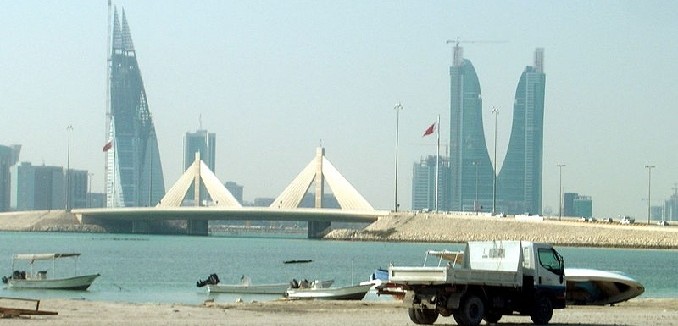Bahrain’s cabinet has made the country the first Arab state to blacklist Hezbollah as a terrorist organization. The move follows a recommendation issued last week from the Gulf nation’s parliament to do so.
Bahrain has long claimed that the Iran-backed terror group foments instability inside the Gulf nation’s borders. In a secret 2011 report to U.N. Secretary-General Ban Ki-moon, Bahrain accused Hezbollah of training anti-government rebels in Lebanon and Iran. The report cited extensive ties between Hezbollah chief Hassan Nasrallah and Ali Salman, the leader of Bahrain’s Shiite Wefaq party. Last year, Hezbollah’s Al-Manar television reported that Salman had “confirmed Al-Wefaq’s loyalty to Hezbollah and the armed resistance.”
Iran’s Arab neighbors have become increasingly vocal in criticizing the Islamic republic for interfering in their internal affairs, for sowing unrest in the region, and for pressing its territorial claims over contested territory. A group of Arab ministers last month accused Iran of “logistic help to terrorist operations” in Gulf countries. A month before that, Bahraini officials accused the Islamic republic of training, arming, and financing a “terrorist cell” in their country. A few months before that, officials intercepted an arms-filled vessel headed to Yemen from Iran.
The Gulf Cooperation Council has blasted Iran for working to destabilize Arab regimes several times in recent months.
Regional Arab governments are known to particularly fear Iranian nuclear weapons acquisition, which they believe will provide Tehran immunity to continue its efforts against them. Saudi Arabia and the UAE have both made the case for attacking Iran’s nuclear installations, and last month Saudi Foreign Minister Saud al-Faisal emphasized that open-ended negotiations with Iran were unacceptable and would leave the world “in front of a nuclear weapon.”
[Photo: Soman / Wiki Commons]




